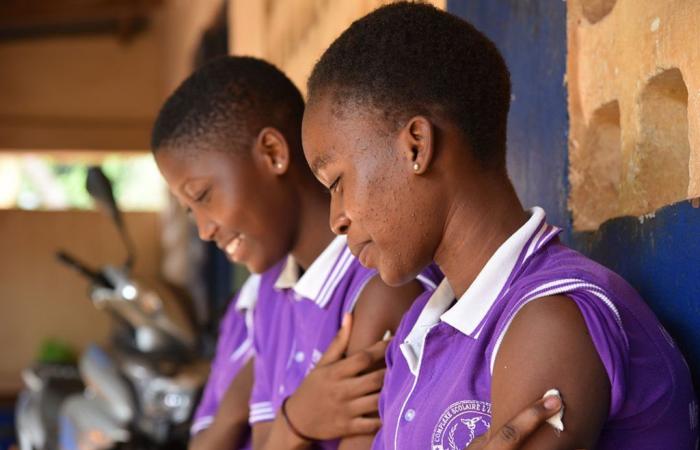In 2010, a room at the Mulago National Referral Hospital in Kampala, Uganda, was reserved for women suffering from advanced cervical cancer. The room was full.
The obstetrician-gynecologist in charge, an incredibly energetic woman, felt obvious frustration: most of the women admitted to this unit were no longer operable, she explained. The lack of adequate screening, coupled with a deep cultural fear of hospitals, meant that these women were often not identified by the health system until very late in the disease.
I, Maya, was very young at the time, which I think may explain why my stomach lurched in panic when I entered that room.
The place was quiet, the air seemed heavy with pain. Beneath the strong odor of the disinfectant there was a sickening, heavy and oily scent, that of sick bodies. I noticed a woman in bed — so thin that her body was only a slight hump under the blanket — cuddled up to a small baby.
“Ah yes,” murmured the doctor, “it’s a sad and rare case. She managed to carry her pregnancy to term and gave birth just a few days ago, but she is unlikely to live much longer. I often dream of them. »
This morning I realized that if this child were a girl, she would be 14 years old today, and she would be eligible for the vaccine that almost certainly would have spared her mother, if only it had been available sooner.
Our archives are filled with ghosts like this: women born a generation too early, whose losses are mourned by their children, their mothers, their fathers and their husbands, while HPV vaccination campaigns multiply in the low-income countries, where cervical cancer caused the greatest number of deaths.
But today, the vaccine is available in more and more places, and for free. Last year, Gavi helped vaccinate 14 million girls against HPV, more than the total number of girls vaccinated in the previous decade. Between 2014 and 2023, Gavi’s support for the vaccine rollout saved around 600,000 girls from dying from cervical cancer, and this figure continues to rise. By the end of 2025, the total number of girls vaccinated with Gavi support will reach 86 million.
Even more girls will be protected in the years to come, provided the Vaccine Alliance secures the funding needed to complete its work. Gavi is seeking to raise $9 billion to fund all of its activities, including the introduction and deployment of the HPV vaccine, vaccinating children in half the world, strengthening health systems, and support for innovations that could transform global health, over the period 2026 to 2030.
Join us as we revisit some of our favorite HPV articles from our archives.
– The editorial staff
“I felt like I was turning into an ice cube – I was having an out-of-body experience”: Karen Nakawala opens up about her battle with cervical cancer
Four years ago, Zambian radio and television journalist Karen Nakawala was diagnosed with cervical cancer. She survived, but unfortunately that was not the case for many of her friends at the time. Today, she has made it her mission to convince young girls around the world to get vaccinated against the human papillomavirus.
Read the article
Immaculate infection: the enigma of HPV among the nuns of Ghana
A recent study highlights the importance of cervical cancer screening and human papillomavirus vaccination for everyone.
Read the article
The comic that teaches Ugandan children the importance of HPV vaccination
Cervical cancer kills thousands of women in Uganda every year. This is what “The Adventures of Adriko and Nampijja” attempts to change.
Read the article
Thanks to a father’s love, young Nigerian women are protected against cervical cancer
The tragic loss of his wife to cervical cancer strengthened the resolve of Maina Modu, a vaccination worker in Borno State, to protect not only his daughters, but all girls in the country. the State against this vaccine-preventable disease.
Read the article
Vaccination portrait: the HPV vaccine
Knowing that cervical cancer kills a woman every two minutes, it is absolutely necessary to deploy vaccination against the human papillomavirus (HPV) which can prevent almost all of these deadly cancers.
Read the article






